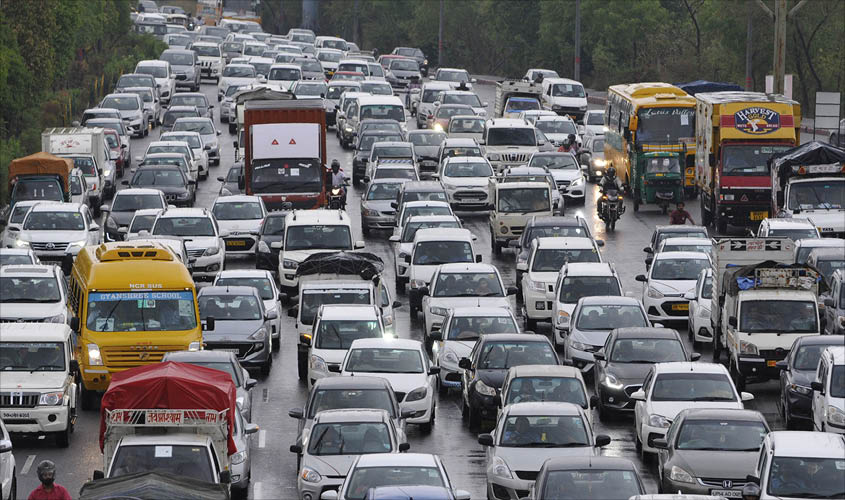‘The states can change the rules made by the Centre, but the intention of the law cannot be changed’.
NEW DELHI :It has been almost two months since the amended Motor Vehicles’ Act has come into effect, but still 11 of the 29 states in the country are still dragging their feet to come on board to fully implement the new motor vehicle rules.
Sources in the Ministry of Road Transport and Highways said that since the matter of Transport falls under the Concurrent List of the Constitution, the states have some right over making changes to the rules made by the Central government, but the “intention” of the law cannot be changed.
A senior officer from the Ministry of Road Transport and Highways told The Sunday Guardian: “Transport is a Concurrent Subject and, therefore, the states are taking their taking their time to review the law and once a detailed consultative process at the respective state level is completed, it is expected that the states will notify the law.”
Asked if the Ministry has spoken to these states or held any consultation with these states to implement the new law, the officer said, “No, the Ministry has not held any consultation with any of the state governments. We have not asked them or directed them to do anything. When the need arrives, we will get in touch with them.”
The newly amended Motor Vehicles’ Act was passed in both Houses of Parliament in the Budget session and was implemented from September 1 this year. The new law increased the penalties for violations of the law like red light jumping, drunken driving, rash and negligent driving, usage of mobile phone while driving, and other similar offences by 100%, hoping to act as a deterrent and bring down road accident casualties drastically. After protests from some sections of the people, several state governments decided not to implement the law in totality, while some did so partially.
All the non-BJP ruled states like Punjab, Telangana, Madhya Pradesh, Chattisgarh and West Bengal have totally decided against implementing the new laws under the amended Motor Vehicles’ Act.
Even the BJP ruled states like Gujarat, Maharashtra, Uttarakhand and Karnataka are dilly-dallying in implementing the newly amended provisions of the Motor Vehicles’ Act. For instance, Gujarat was the first state which made changes in the amended Motor Vehicles Act, while Maharashtra, which went to elections just a month after the implementation of the new law, decided to hold it back for further legal consultation.
However, Left-ruled Kerala, which earlier had put its foot down over implementation of the new law, earlier this week decided to lower the penalty charges for some of the violations under the Motor Vehicles Act and is likely to notify it after Diwali.
Organisations and experts associated with road safety say that states should build a consensus and implement the new amended Motor Vehicles’ Act which they term as a “life saving” law brought in by the Centre, as every year, more than 1.45 lakh people lose their lives on the roads due to accidents and negligent and rash driving.
Piyush Tewari, founder of SaveLIFE Foundation told The Sunday Guardian that the Centre has shown the political will towards making roads safer and saving lakhs of lives every year and now it is time for the states to show their share of political will towards building safer roads.
“The southern states are still holding a consultative process with all the stakeholders and that there are 24 sections in the new law in which the states have the powers to amend keeping in mind the local realities and it is hopeful that they will do it. If the states do not implement it, it would be in violation of the Constitution’s Article 254 and the courts will have to intervene to make the states fall in line,” Tewari said.
He further added, “The states need to cut down on the politicking and think of lives of the people; now, the onus is on the state governments to show their political will and the courts to take the issue up. We are hopeful that within the next six Wmonths, all the states will be on board.”

